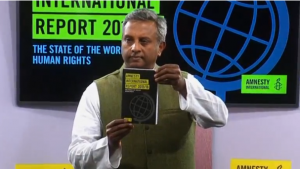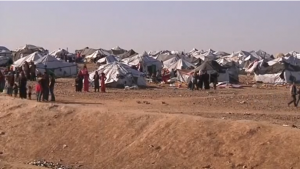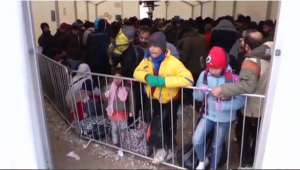
LONDON, ENGLAND, United Kingdom (Reuters) — International protection of human rights is in danger of unravelling as governments focus more on short-term national self interests and implement security crackdowns, Amnesty International warns in it’s annual report released on Wednesday (February 24).
The State of the World’s Human Rights said there had been a wholesale assault on basic freedoms and rights.
“The system to protect human rights is itself under threat and needs protection. The system that has been very carefully built over seventy years to protect human rights now needs to be protected,” said Salil Shetty, the Secretary-General of the organization.
Amnesty warned of an insidious and creeping trend of governments deliberately attacking, cutting funds to or neglecting institutions set up to protect rights.
It says more than 70 years of work and progress on human rights are at risk.
“Human rights has been treated as if its some kind of add-on whereas from an Amnesty International perspective human rights is an absolute necessity, its a fundamental prerequisite. But this has been thrown to the winds,” Shetty said.

Researchers looked at 160 countries and documented how many governments broke international law in 2015. They concluded that more than 122 states tortured or ill-treated people, 30 or more illegally forced refugees to return to countries where they would be in danger. In at least 19 countries, war crimes or other violations of the “laws of war” were committed by governments or armed groups.
Amnesty reported a worrying trend among governments increasingly targeting and attacking activists, lawyers and others who work to defend human rights. The organisation blames this reaction on growing security threats in 2015.
The conflict in Syria and Europe’s migrant crisis are examples of how the vulnerable U.N. system has failed to offer protection from those fleeing the scourge of war.
“A quarter of a million people have died, attacks on civilians starting from the Assad regime now to bombing from Russia and all of the armed forces as well who are attacking civilians without any kind of accountability,” Shetty said.

The report said many governments have wilfully thwarted UN action to prevent mass atrocities and rejected or poured scorn on its recommendations to improve human rights nationally.
The Syrian conflict is one horrific example of the catastrophic human consequences of a systemic failure of the U.N. to fulfil its vital role in upholding rights and international law and ensuring accountability.
The report pointed the finger at Russia over its refusal to acknowledge civilian casualties in attacks on Syria and moves to block U.N. Security Council action on Syria. Damascus’ killing of thousands of citizens and starvation caused by blockading international aid.
There are a huge variety of allegations levelled by Amnesty at country’s and governments across the world.
Saudi Arabia is highlighted committing war crimes in its Yemen bombing campaign.
Hungary is criticized for sealing off its borders to thousands of refugees and obstructing regional attempts to help them.
China is accused of stepping up crackdowns on human rights defenders in the name of national security, whereas the U.K. comes under fire for its surveillance laws, which gained momentum last year. There are concerns over the interception of personal communications and the storing of that data.








